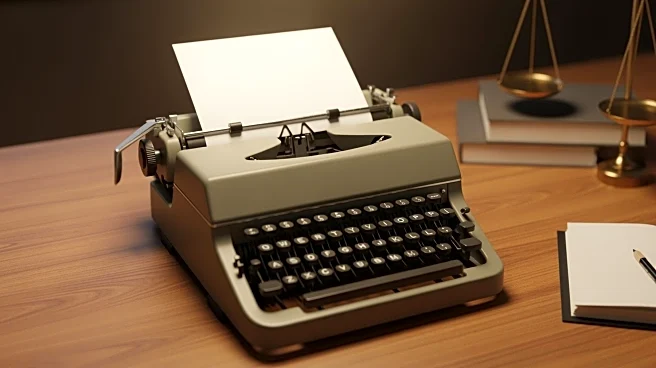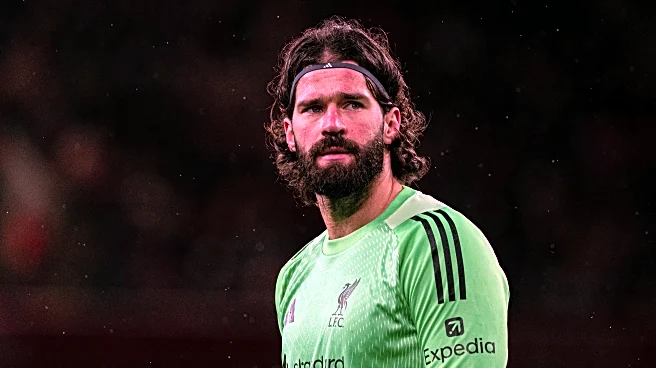What's Happening?
Author Michael Wolff has filed a lawsuit against First Lady Melania Trump, alleging that she threatened to sue him for over $1 billion in damages if he did not retract statements related to Jeffrey Epstein.
The lawsuit, filed in state Supreme Court in Manhattan, seeks unspecified damages. Wolff claims that Melania Trump and President Trump have a history of threatening legal action against those who criticize them, aiming to silence speech and intimidate critics. The lawsuit argues that these threats are intended to create a climate of fear, inhibiting the exercise of First Amendment rights. The legal action follows a deadline set by Melania Trump's lawyer for Wolff to retract his statements, apologize, and pay damages, citing reputational and financial harm. Wolff intends to use the lawsuit to question the Trumps under oath about their involvement with Epstein.
Why It's Important?
This lawsuit highlights ongoing tensions between public figures and the media, particularly concerning freedom of speech and the right to criticize. The case could set a precedent for how defamation claims are handled when involving high-profile individuals. If successful, Wolff's lawsuit may encourage other journalists and authors to challenge legal threats from powerful figures, potentially impacting how public discourse is conducted. The outcome could influence the balance between protecting reputations and upholding free speech rights, affecting media practices and public policy regarding defamation and freedom of expression.
What's Next?
The lawsuit may lead to a legal battle that could involve depositions and testimonies from both Melania and President Trump, potentially revealing more about their connections to Epstein. The case could attract significant media attention, influencing public opinion and possibly leading to further scrutiny of the Trumps' past associations. Legal experts and civil rights advocates may weigh in on the implications for free speech and defamation law, while political figures might use the case to discuss broader issues of media freedom and accountability.
Beyond the Headlines
The lawsuit raises ethical questions about the use of legal threats to suppress criticism and the role of public figures in shaping media narratives. It also touches on the cultural dynamics of power and influence, examining how individuals in positions of authority manage public perception and control information. The case could lead to discussions about the ethical responsibilities of authors and journalists when reporting on controversial topics, as well as the potential consequences of challenging powerful entities.










